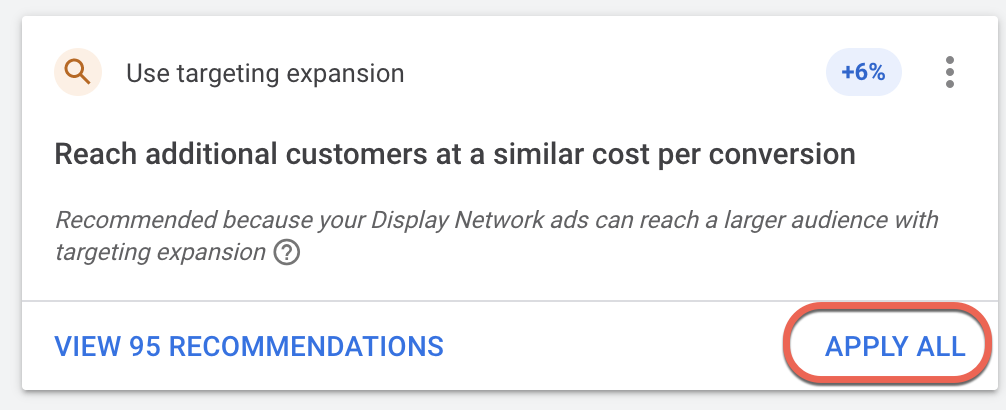It’s been another dynamic and fast-paced year in the world of paid search marketing, with many new challenges and opportunities.
While it’s been a great year, with many things to be thankful for, we’d still like to see a few improvements.
But unfortunately, not all of our wishes come true.
Indeed, a quick review of our wish lists from 2021 and 2020 show that many of those wishes still haven’t been granted—and some even made it to our list again this year.
Still, that won’t stop us from wishing and trying!
Here are the three wishes that top our PPC wish list for 2022:

1. More consistent application of Google Ads’ policies
Inconsistency in the application of Google Ads policies is another growing problem, particularly as Google Ads cracks down on forbidden practices.
While we applaud Google’s efforts to create a safe and healthy advertising environment, we see wide variation in how their policies are enforced.
For example, Google Ads policy prohibits the promotion of dangerous products and services, such as tobacco products, explosives and firearms. That’s fair enough.
More recently, however, Google started to disallow ads where the advertiser even mentions these items on their website.
That’s fine too.
(Although, as you can imagine, it creates headaches for advertisers that have that language on their websites even if they’re not selling those items, such as toy manufacturers and antique dealers.)
The real problem is in the inconsistent application of this policy.
For example, many big box retailers in the U.S. mention shooting supplies, firearm components and ammunition accessories on their websites.
Yet Google still allows them to advertise.
However, Google has disallowed ads for some of our clients (who aren’t big box retailers) because some of these items are mentioned on their websites in a tangential way.
Not fair, Google!
Here’s another example: we have two clients in the same industry (although not in competition with each other), and we had similar remarketing campaigns for them both.
The campaign for one client was disallowed due to an ad policy violation.
The campaign for the other client ran for another two years before Google disallowed it for the same ad policy violation.
What explains the two-year gap?
Sure, it takes time to roll out and apply ad policy. But two years seems outrageous.
Of course, we take these cases to our Google reps as they come up, and they do their best to run them up to the Google policy team.
But the responses we receive usually aren’t helpful. Often, they simply refer us back to the Google Ads policy page.
2. Better Google support
Unfortunately, Google’s support seems to get worse with each passing year.
Google reps frequently give us incorrect information in critical account areas. It’s become almost routine!
I don’t blame the reps for their lack of knowledge and expertise.
Most reps I’ve spoken to admit they’re new to the business, and I suspect most have never managed a Google Ads account before.
Clearly, the role of Google Ads support rep is an entry-level position. And it seems that as soon as those reps get some experience, they’re promoted to other positions and replaced by new “green” reps.
Certainly, Google replaces our support reps every year or so.
Considering that many of our clients spend tens of thousands of dollars with Google Ads every month, it seems crazy they don’t get better support.
While this situation is disheartening and frustrating, it’s made even more irksome when reps follow a script by pushing certain strategies on us—regardless of our clients’ specific goals or needs.
And when we do give those strategies a try, our Google reps have very little to say when those strategies don’t perform as promised.
At the same time, I’ll see my PPC colleagues voicing their frustration on social media about THEIR reps pushing the SAME strategies to them.
It’s almost like Google Ads has a quarterly sales meeting where they decided which features and products they want to promote, and then instruct their support reps to push those features and products—no matter whether they make sense for the account.
But surely that’s too cynical of a take?
3. Less Google Ads “help”
In the first two items on our wish list, I’ve asked Google Ads for more help. So, let me finish by requesting less“help” from Google in one particular area.
Google has “conveniently” placed an “Apply All” button on its recommendations tab (circled in red, below):

More than once, we’ve had clients go into their accounts to update credit card information or something similar, and hit this “apply all” button.
And the account goes haywire!
Fortunately, we keep a very close eye on our client accounts and catch these mistakes quickly.
But what happens to advertisers who make this change inadvertently and don’t realize it?
We’d love to see the “apply all” option removed. It’s an accident waiting to happen.
Wishing You All the Best for 2022
Here’s to hoping all of our PPC wishes come true.
But even if they don’t, all of us here at Group Twenty Seven wish you a very happy holiday—and a wonderful 2022!






